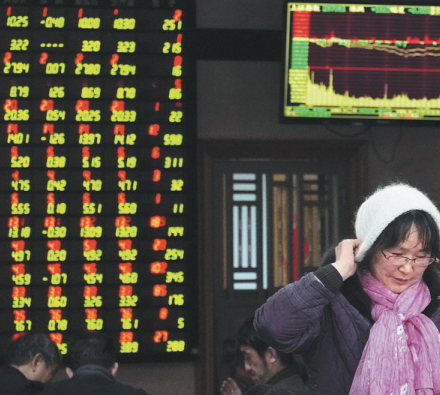Regulators smooth bumps on IPO roads
By SHI JING in Shanghai (CHINA DAILY) Updated: 2019-12-03 00:00Regulators are set to promote the normalization of initial public offerings in the A-share market for a more sustained development of the Chinese capital market, according to the China Securities Regulatory Commission.
Four State-owned financial newspapers published stories on Monday quoting people close to the CSRC as saying that the regulator will continue to advance the normalization of initial public offerings in the hope of developing equity financing, optimizing the quality of listed companies and better serving the real economy.
CSRC will also emphasize the balanced development of both investment and financing. Stocks issuance, registration and market tolerance will be connected organically to avoid risks. "There will neither be a suspension of IPO approvals nor collective approvals," said the people close to the regulator.
The commission's statement came at a time when IPOs are in the limelight. Up to seven companies listed on the newly launched technology-focused STAR Market at the Shanghai Stock Exchange have collectively seen their prices drop below their initial offering price by Nov 28.
Another two commercial banks listed on the main board also encountered a similar situation last month.
Li Xunlei, chief economist of Zhongtai Securities, said: "Prices of newly-issued shares falling below their offer price is completely normal based on market rules. In the mid-to long-term, a pricing mechanism based on market rules, which the central regulator is advancing, will become more mature in the A-share market."
Public information shows that the Issuance Appraisal Committee of the CSRC had approved IPO applications of 115 companies by Nov 28, with the total financing reaching over 156.3 billion yuan ($22.2 billion).
Meanwhile, a total of 120 companies were successfully listed on the main board, SME board and ChiNext of the A-share market by Nov 28. The weekly financing amount of these companies came in at 3.69 billion yuan.
Xun Yugen, chief strategist at Haitong Securities, said that the A-share market is sure to attract more capital inflows in 2020, which is estimated at around 1.1 trillion yuan. About 500 billion yuan of the funds will have flown into the A-share market by the end of this year, he said.
According to global law firm Baker Mckenzie, IPO activity in China will be on par with that in 2018 this year, reaching $16.4 billion, with domestic IPOs continuing to be the main driver.
Looking ahead, Baker McKenzie expects China IPOs to rise by 42 percent year-on-year in 2021 to $22.2 billion, and by a further 17.6 percent in 2022 to $26.1 billion.
Yang Delong, chief economist at Shenzhen-based First Seafront Fund, pointed to the fact that direct financing, of which stocks account for an important part, is still at a low rate in the Chinese capital market. A higher rate of direct financing is the prerequisite of a prosperous capital market, he said.
Yang also called for efforts to perfect the A-share market's delisting mechanism while maintaining the steady pace of IPOs. Only in this way can the A-share market attract truly quality companies and eliminate the unfit ones, he said.

- 'Cooperation is complementary'
- Worldwide manhunt nets 50th fugitive
- China-Japan meet seeks cooperation
- Agency ensuring natural gas supply
- Global manhunt sees China catch its 50th fugitive
- Call for 'Red Boat Spirit' a noble goal, official says
- China 'open to world' of foreign talent
- Free trade studies agreed on as Li meets with Canadian PM Trudeau
- Emojis on austerity rules from top anti-graft authority go viral
- Xi: All aboard internet express











